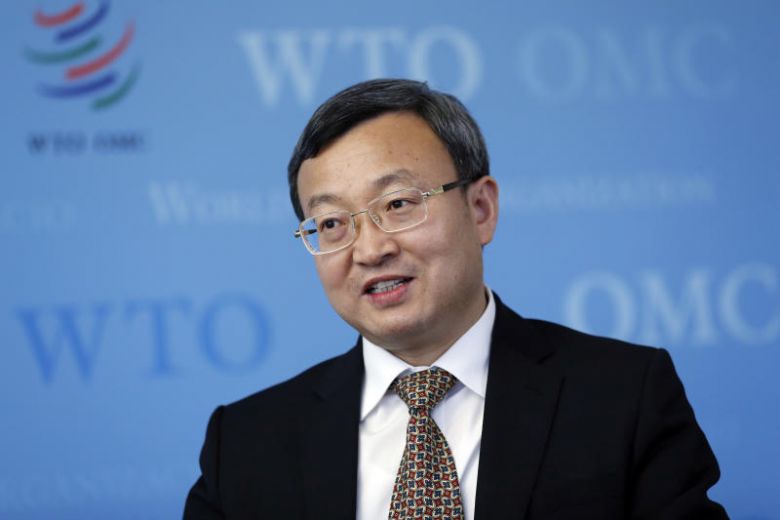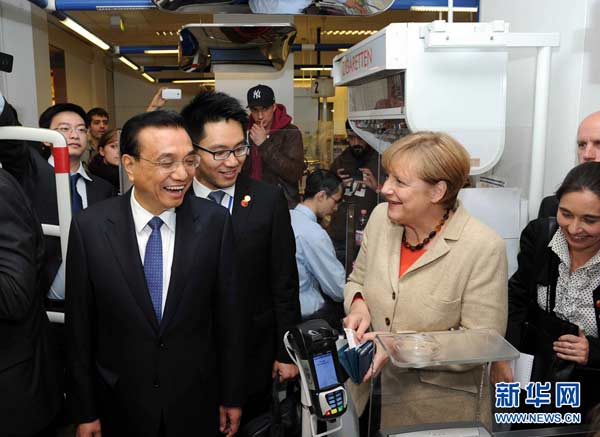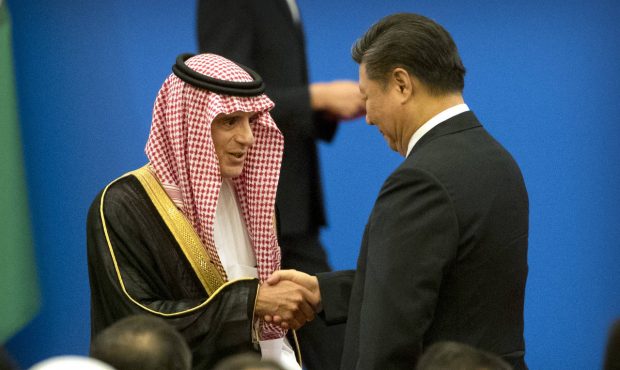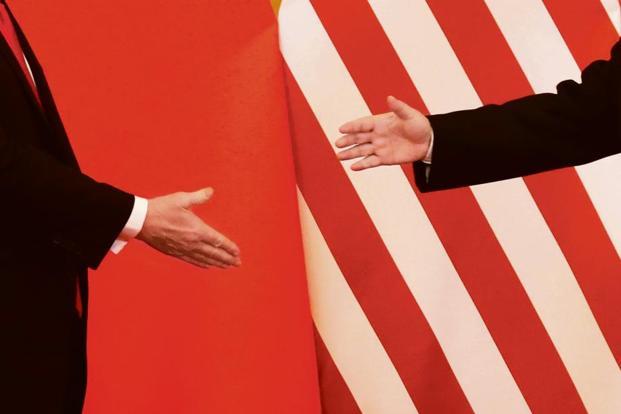
 China Defends WTO Record in the Face of Additional U.S. Tariffs
China Defends WTO Record in the Face of Additional U.S. TariffsThis week, as the U.S. released a list of Chinese products that may be subject to a new 10% tariff by late August as a response to China's intellectual property practices, China underwent a regular review of its compliance with global trade rules by the World Trade Organization (WTO) in Geneva. The biennial review of China's trade policies is China's seventh since it joined the WTO in 2001 and focused on China's role within the global trade system and market reforms since its last review. Prior to the meeting, China received almost 2,000 written questions from 42 WTO members — on issues such as market access, overcapacity and intellectual property — and provided responses to the majority of these questions.
China's vice minister of commerce, Wang Shouwen, who attended the review along with 30 other government officials, defended China's record at the WTO and noted China's contribution to global growth and protection of free trade. On intellectual property, he said that IP rights "were no longer a major problem" in the "business operation" of U.S.-invested enterprises in China. Meanwhile, the WTO's report on China said, "China's main laws concerning intellectual property rights (IPRs) have remained largely unchanged. . .enforcement of IPRs continues to be a major challenge for China."
Last week, the WTO said in a report that the world's largest economies had imposed twice as many restrictions on trade in the six months through mid-May as they did in the previous period and warned that further escalation could hurt growth and risk destroying the international system for moderating trade disputes. "The multilateral trading system was built to resolve such problems and it has the tools to do so again," the WTO said. Conversely, the U.S. ambassador to the WTO, Dennis Shea, argued at a WTO meeting this week that China's unfair trade policies "skew[ed] the playing field … in myriad ways" and were too urgent and too big for the WTO to handle.
The United States' new list of around 6,000 Chinese products to face tariffs totalling $200 billion largely targets imports of electrical products, machinery, furniture and vehicle parts. Unlike the previous tariffs, they are likely to affect American consumers, as they cover consumer items like seafood, vacuum cleaners, handbags and clothes.
 Mutual Pain, New Partners
Mutual Pain, New PartnersAt the start of this week, Chinese Premier Li Keqiang met with German Chancellor Angela Merkel in Berlin to solidify a number of agreements that reiterate both nations' commitment to the international free trade order, despite mutual trade conflicts with the United States. In what Reuters called "a raft of commercial accords," with a total value of over $20 billion, the deals link two of the world's largest economies together as they both brace for an uncertain future.
German industrial powerhouses Siemens, Volkswagen, and BASF were involved, with BASF alone signing a nearly $10 billion agreement to build an additional chemical complex in Guangdong, China. This project would be the largest expansion enterprise in the company's history and with complete ownership of the plant, BASF will become the first fully-foreign owned chemical plant in China. Chancellor Merkel praised the series of deals, stating, "This shows that China's market opening in these areas isn't just talk, but action," at a joint press conference.
While many observers applauded the positive cooperation between China and Germany, others noted that this won't eliminate concerns regarding increasing Chinese investment in Germany as well as demands by German companies for more access to Chinese markets. Though these points of contention remain, the overarching pressure from the United States on both countries appears to be pushing China and Germany to work past smaller differences to forge a deeper economic relationship that can serve "to highlight a new-found spirit of mutual cooperation." As Shen Yamei argued for China-US Focus, Trump's "America First" principles and the policies that have followed have placed the U.S. and its European allies, "on a collision course with regard to their interests, security, as well as values." As the countries appear no closer to restoring their past positive relationship, China and Germany may be the first of many partnerships between China and the rebuffed nations of Europe.
 China Pursues Partnership with Arab States
China Pursues Partnership with Arab StatesOn Tuesday, President Xi Jinping pledged $23 billion in loans to Middle Eastern states during talks to strengthen Sino-Arab strategic ties at the China-Arab States Cooperation Forum. Beijing hopes the loans, part of the "oil and gas plus" model for economic growth, will be used to promote projects and create jobs, and to provide humanitarian assistance to war-torn countries in the region. There is also the possibility that free trade agreements will be formed with each state of the Arab League.
China's increased involvement in the Middle East is key to the Belt and Road Initiative's aim to build a network that will link Beijing to other parts of Asia, Europe, and Africa. While the Middle East is economically significant as the source of half of China's oil and gas imports, Beijing has traditionally kept its distance from the politics and security crises of the region. However, this investment pledge, along with Xi's calls to respect state sovereignty and the international consensus on the Israel-Palestine dispute, demonstrates that China aims to become a more active player in the Middle East. In addition to the loans, China plans on long-term cooperation in various fields of science and technology, as well as frequent cultural exchanges to build "mutual understanding."
The introduction of this strategic partnership comes at a time of heightened trade tensions between China and the United States, and can be seen as a step to counter Washington's influence in the region. This week, our contributor Ian Forsyth examined China's similar pursuit of an expanded influence in Africa, as Beijing hosted the inaugural China-Africa Defense Security Forum this week.
 This Week's Top Commentary
This Week's Top CommentaryChen Yonglong, director of the Center of American Studies at the China Foundation for International Studies, writes about recent changes in the China-U.S. relationship and the outlook for the future in a commentary this week. Despite recent trade frictions, tensions over the One China policy and shifts in U.S. strategy towards China, Chen argues that the opportunity for a more positive relationship between China and the U.S. is always open. "Adversaries or partners? Today's tensions do not need to turn into tomorrow's war," he writes.
Chen remains hopeful that despite the current situation, China and the U.S. have "infinite opportunities" to find common ground. "It is likely that rational and moderate voices in the U.S. as well as interest groups will not want to give up access to China's huge $8 trillion-market. In this era of free-flowing information, fewer young people are deceived by fake news and fabricated public opinion. More than half of them have been shown to have positive feelings towards China. They are the future of China-U.S. relations." Read the full article here.
Prepared by China-US Focus editorial teams in Hong Kong and New York, this weekly newsletter offers you snap shots of latest trends and developments emerging from China every week, while adding a dose of historical perspective.
- 2018-07-06 The Trade War Begins
- 2018-06-29 President Trump Chooses Slightly Softer Option on Chinese Investment
- 2018-06-22 Trade Tensions Spark Stock Sell-Off in China
- 2018-06-14 How “Comprehensive” Is the Kim-Trump Agreement?
- 2018-06-08 China Awards Putin First Medal of Friendship
- 2018-06-01 USPACOM Rebranded As U.S. Indo-Pacific Command
- 2018-05-25 Trump Cancels North Korea Meeting
- 2018-05-18 The On/Off Trump-Kim Summit
- 2018-05-11 American Goods Are Stuck at Chinese Ports
- 2018-05-04 China and the U.S. Lay Trade Demands on the Table
- 2018-04-27 U.S. Delegation Will Visit China Next Week
- 2018-04-20 China and the U.S. Seek Allies in Trade Dispute
- 2018-04-13 President Xi Reviews the PLA Navy
- 2018-04-06 China and Russia Pledge Military Cooperation in a Signal to the United States
- 2018-03-30 Kim Jong Un Visits Beijing on First Overseas Visit
- 2018-03-23 President Trump Asks for Tariffs on Around $50 Billion Worth of Chinese Imports
- 2018-03-16 Tillerson to be Replaced by Mike Pompeo as Secretary of State
- 2018-03-09 President Trump Agrees to Meet Kim Jong-Un
- 2018-03-02 U.S. Imposes Tariffs on Chinese Aluminum
- 2018-02-23 A Week of Developments Related to North Korea
